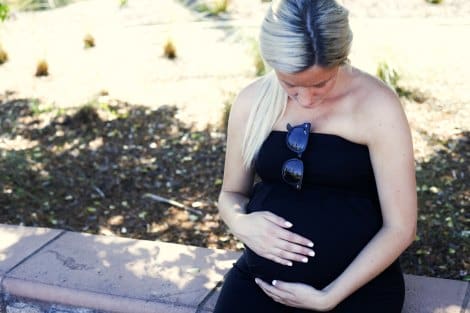
And recently, a new source of worry has sneaked up: the coronavirus outbreak. The spread of the COVID-19 coronavirus understandably has many expecting parents on edge.
We understand that there is a ton of information to take in right now. You’ve got a lot on your plate right now, and it isn’t fair that this is getting thrown at you, too. But please don’t let news of the pandemic steal your joy. If you’re feeling like COVID-19 is causing anxiety, please speak to your health care provider and those in your support system.
If you feel like it would be valuable to know more about how the virus can impact pregnancy, read on. Here’s what experts are saying about the risks that COVID-19 presents to pregnant women, along with tips for how to prepare and respond.
Are pregnant people at higher risk for Coronavirus?
The Centers for Disease Control (CDC) reports that the risk to the public is low at this time. And the American College of Obstetricians and Gynecologists (ACOG) says, “At this time, very little is known about COVID-19, particularly related to its effect on pregnant women and infants, and there currently are no recommendations specific to pregnant women regarding the evaluation or management of COVID-19.”
The CDC has no evidence to suggest there will be harmful pregnancy outcomes for pregnant women with COVID-19. However, developing a fever is always risks during pregnancy, so the CDC advises pregnant women to be cautious and practice good hygiene. The agency notes on its website, “Pregnant women should engage in usual preventive actions to avoid infection like washing hands often and avoiding people who are sick.” The good news is that you’re probably already doing those two things, and there’s more good news.
If I get COVID-19 does my baby get it, too?
According to the CDC, in recent cases outside the U.S. where newborns were born to moms diagnosed with COVID-19, only “one of the infants has tested positive for the virus that causes COVID-19. Additionally, [the] virus was not detected in samples of amniotic fluid or breastmilk.”
In limited recent case studies of babies born to mothers infected with COVID-19 published in ACOG’s literature, none of the infants have tested positive for COVID-19.
A medical journal called The Lancet recently published a study that looked at the health of nine babies born to moms during a COVID-19 infection. All nine babies had good Apgar scores, scoring in the 8-9 range one minute after being born and then getting a 9-10 after five minutes.
Researchers involved in The Lancet study noted that since “pregnant women are susceptible to respiratory pathogens and to development of severe pneumonia,” they may be more susceptible to COVID-19 “especially if they have chronic diseases or maternal complications. Therefore, pregnant women and newborn babies should be considered key at-risk populations in strategies focusing on the prevention and management of COVID-19 infection.”
To sum it up, researchers want pregnant women and health professionals to be proactive in preventing COVID-19. Still, the cases they’ve studied so far suggest that the elderly and those with compromised immune systems are more at risk. So far, there haven’t been any verified reports of babies experiencing severe complications.
If I get Coronavirus, how can I protect my baby?
The CDC has developed a guide for mothers who have COVID-19, called the Interim Guidance on Breastfeeding for a Mother Confirmed or Under Investigation for COVID-19. It advises mothers to take all possible precautions so that they can avoid giving the virus to her baby. This includes washing her hands before touching her baby and wearing a face mask while breastfeeding. And if she pumps milk, making sure to wash her hands before touching any pump or bottle parts and to wash each piece thoroughly after each use. In addition, they advise that “If possible, consider having someone who is well feed the expressed breast milk to the infant.”
The Bottom Line About COVID-19 and Pregnancy
Yes, COVID-19 is definitely worth taking precautions about, but it’s not worth making yourself sick with worry. If you feel like the worry is turning into anxiety and impacting your pregnancy, please call your health care provider. The same goes if you are worried about symptoms you think may be COVID-19. Experts don’t recommend going to the emergency room without calling first, so make sure to call your OB-GYN or midwife before going to an ER or clinic where sick people are. Symptoms of COVID-19 include:
- Fever
- Cough
- Shortness of breath
The CDC advises calling your “healthcare professional if you develop symptoms, and have been in close contact with a person known to have COVID-19 or if you have recently traveled from an area with widespread or ongoing community spread of COVID-19.”
Since these recommendations may change, make sure to remain in contact with health professionals if you have questions about the coronavirus.

